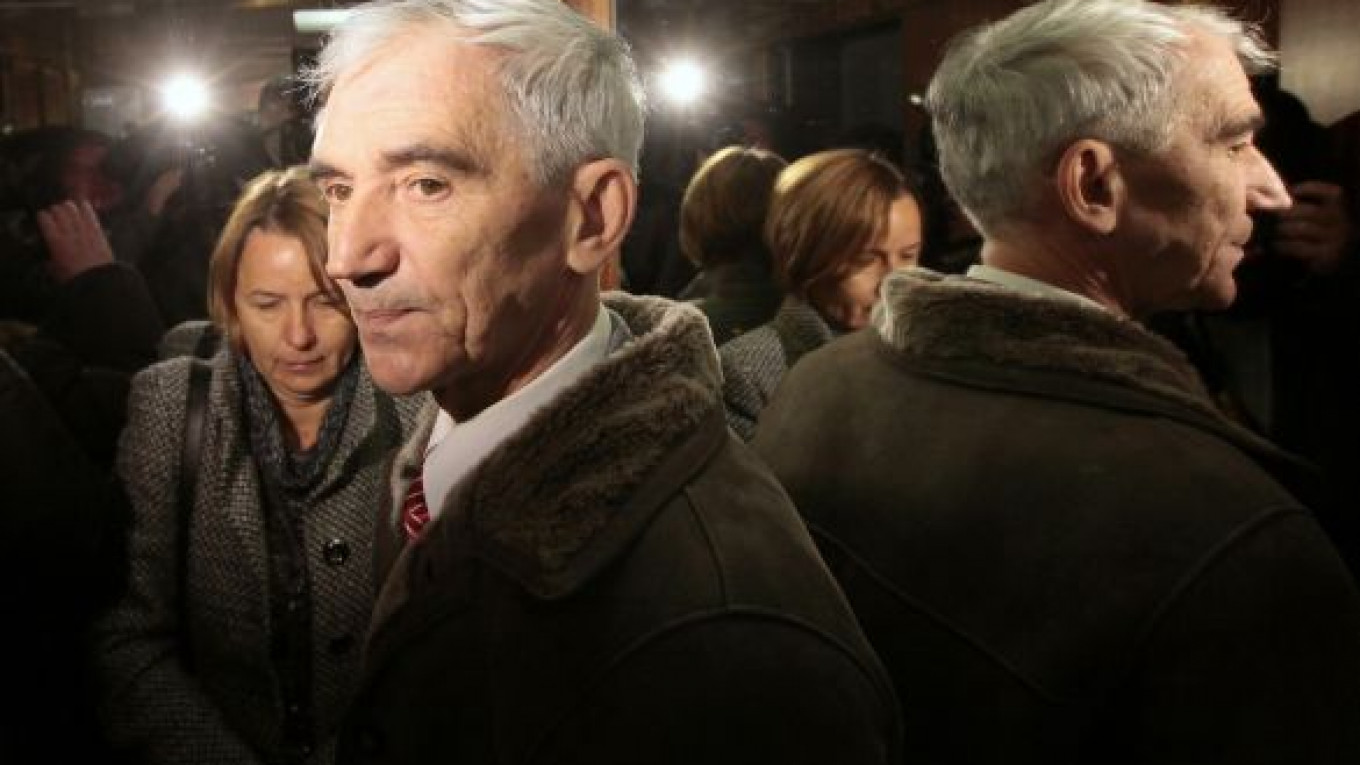KRASNOYARSK — Physicist Valentin Danilov, convicted of spying for China in 2004, has been released on parole and is continuing to protest his innocence.
Danilov, 66, looked pale and thin as he was released on parole from a prison colony on the edge of the industrial Siberian city of Krasnoyarsk.
But he was defiant over a case that human rights activists say was politically motivated and part of an attempt by Vladimir Putin to intimidate academics with ties to other countries during his first term as president.
"I would really appreciate it if somebody finally told me what state secret I sold," Danilov told reporters after he emerged from the prison colony's high corrugated walls and traveled by car through the snow-dusted streets of Krasnoyarsk to his daughter's apartment.
He criticized Russia's political and judicial system nearly 13 years after Putin first rose to power.
"As for President Putin, I guess everybody would be the same as him in his place. The court makes the tsar. In many cases it's the people around him that are guilty rather than him himself," Danilov said.
"The problem is not one of law but of how the judging is done. … We have three branches of power — the legislative, the executive and the judiciary. It's a fight between the legislative and executive with the court in between. They should pull in different directions so that the court works well, but if they all pull in only one direction, then what?"
Human rights activists see Danilov's case as an example of the Kremlin using the courts against its opponents. Putin has denied influencing the judiciary.
Danilov, a researcher at Krasnoyarsk State University, was first arrested in 2001. He admitted selling information about satellite technology to a Chinese company but said the information had already been available from public sources.
An initial decision to acquit him in December 2003 was overturned and he was sentenced to 14 years in prison in a second trial in 2004. His sentence was later reduced by a year. A Krasnoyarsk court granted him parole earlier this month.
Danilov smiled, joked and laughed with reporters as he took frequent calls from well-wishers, although at times he seemed nervous.
He said he had been treated well by other prisoners and thanked human rights organizations for providing him with books, praising the messages of support he had received from U.S. physicists. He said he had received no such support from Russia's own Academy of Sciences.
Asked whether he considered himself a political prisoner, he said: "Absolutely. … No money can compensate for 10 years of your life."
He said he had no immediate plans to take on a public role and would spend time with family and friends.
He hoped to return to science but said he would avoid space, the area in which he was accused of spying.
(Reuters, AP)
Related articles:
A Message from The Moscow Times:
Dear readers,
We are facing unprecedented challenges. Russia's Prosecutor General's Office has designated The Moscow Times as an "undesirable" organization, criminalizing our work and putting our staff at risk of prosecution. This follows our earlier unjust labeling as a "foreign agent."
These actions are direct attempts to silence independent journalism in Russia. The authorities claim our work "discredits the decisions of the Russian leadership." We see things differently: we strive to provide accurate, unbiased reporting on Russia.
We, the journalists of The Moscow Times, refuse to be silenced. But to continue our work, we need your help.
Your support, no matter how small, makes a world of difference. If you can, please support us monthly starting from just $2. It's quick to set up, and every contribution makes a significant impact.
By supporting The Moscow Times, you're defending open, independent journalism in the face of repression. Thank you for standing with us.
Remind me later.


